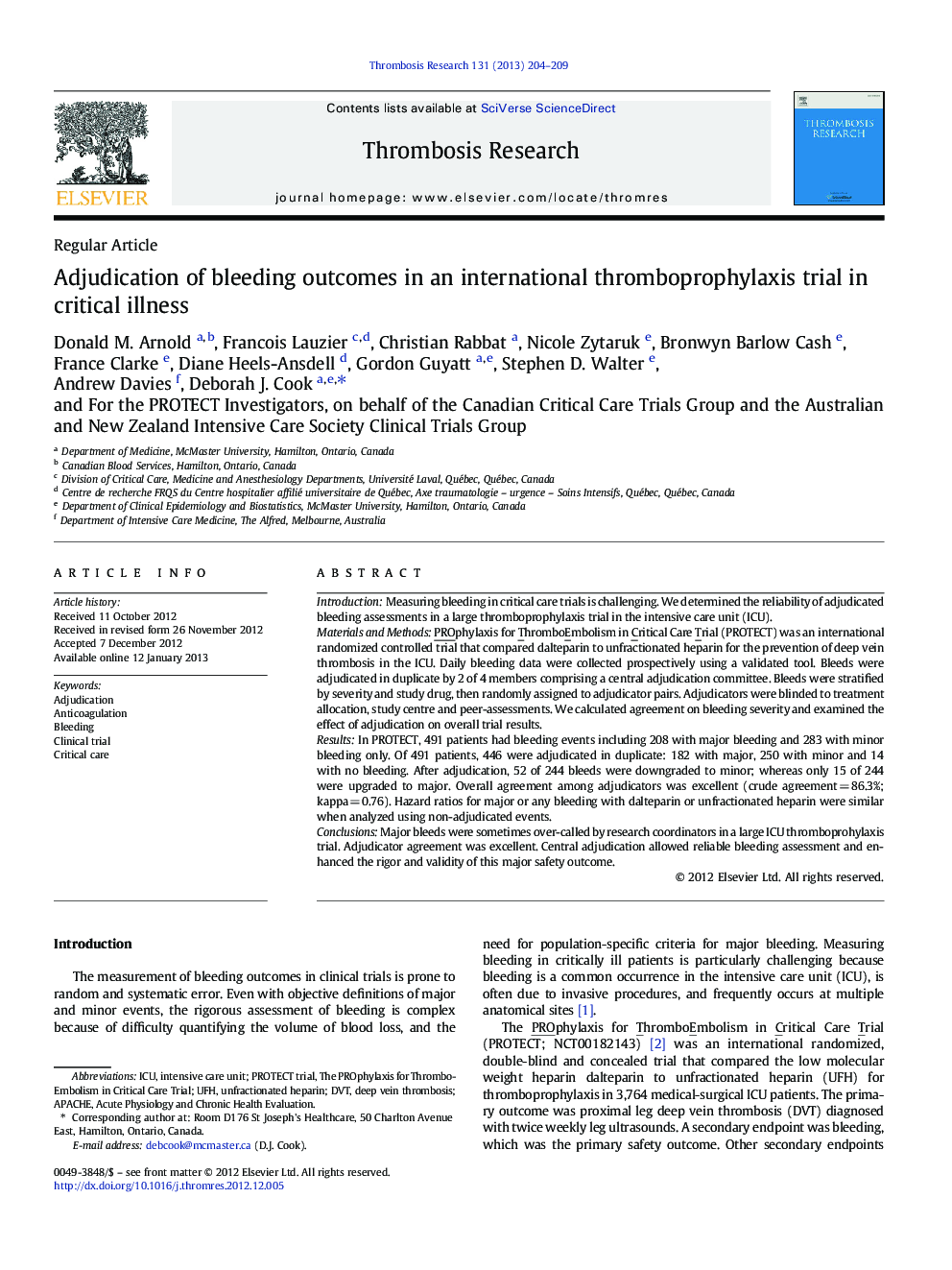| Article ID | Journal | Published Year | Pages | File Type |
|---|---|---|---|---|
| 6002687 | Thrombosis Research | 2013 | 6 Pages |
IntroductionMeasuring bleeding in critical care trials is challenging. We determined the reliability of adjudicated bleeding assessments in a large thromboprophylaxis trial in the intensive care unit (ICU).Materials and MethodsPROphylaxis for ThromboEmbolism in Critical Care Trial (PROTECT) was an international randomized controlled trial that compared dalteparin to unfractionated heparin for the prevention of deep vein thrombosis in the ICU. Daily bleeding data were collected prospectively using a validated tool. Bleeds were adjudicated in duplicate by 2 of 4 members comprising a central adjudication committee. Bleeds were stratified by severity and study drug, then randomly assigned to adjudicator pairs. Adjudicators were blinded to treatment allocation, study centre and peer-assessments. We calculated agreement on bleeding severity and examined the effect of adjudication on overall trial results.ResultsIn PROTECT, 491 patients had bleeding events including 208 with major bleeding and 283 with minor bleeding only. Of 491 patients, 446 were adjudicated in duplicate: 182 with major, 250 with minor and 14 with no bleeding. After adjudication, 52 of 244 bleeds were downgraded to minor; whereas only 15 of 244 were upgraded to major. Overall agreement among adjudicators was excellent (crude agreement = 86.3%; kappa = 0.76). Hazard ratios for major or any bleeding with dalteparin or unfractionated heparin were similar when analyzed using non-adjudicated events.ConclusionsMajor bleeds were sometimes over-called by research coordinators in a large ICU thromboprohylaxis trial. Adjudicator agreement was excellent. Central adjudication allowed reliable bleeding assessment and enhanced the rigor and validity of this major safety outcome.
